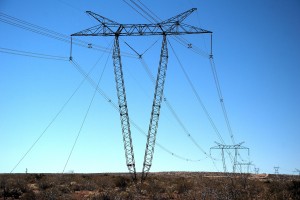The two readings for this week worked hand in hand. Although I wasn’t completely sure if all the mathematics in the first reading had much to do with my communications/media degree, it was kind of nice to sink my teeth into something very rational and scientific for once. As I read the second reading, all of the mathematical jargon from the first came into physical form and started to make sense…
Chris Anderson talks about the benefits of online media in comparison to physical media (i.e. print, video, dvd, music on cd/vinyl, books etc.) and how this has enabled the expansion of niche markets. How you ask…well the internet has one up on the ‘real world’. Online, there is unlimited space and time. For instance, whereas a video rental store may only have as much shelf space to fit 3000 DVDs or Videos, Netflix (the online alternative) has an infinite amount of space. As a result, video rental stores can only really buy in the ‘hits’: the mainstream film titles that they know are going to sell. On the other hand, the online ‘simulations’ of these shops can store as many different films as they want. Even titles that are only for very specific (smaller) markets, like alternative Bollywood films for instance, are valuable to stores on the internet. Anderson notes that ‘the average Blockbuster carries fewer than 3000 DVDs. Yet a fifth of Netflix rentals are outside its top 3000 titles’, thus when you ‘combine enough nonhits on the Long Tail, you’ve got a market bigger than the hits’.
When he speaks about ‘the Long Tail’, Anderson is referring to the power law distribution and the 80/20 rule – both of which were explained in detail in the first reading for this week. Therefore, it was extremely invaluable to have read and developed an understanding of what these scientific theories and algorithms were actually about. What mainly helped me to get a grasp on this mathematical ‘law’, was the graph which compared random distribution (a bell curve) to the power distribution (a graph that to me, at least, looks like an exponential).

If we were to look at the ‘hits’ versus the ‘nonhits’ of film sales on the web, the nonhits would be those on ‘the Long Tail’ – where the graph starts to get infinitely closer to the k axis.
One small thing that the article didn’t really look into was that of infinite time on the internet. An online store is always ‘open for business’, whereas video rental shops, music stores, book stores etc. all have opening hours and in turn, closed hours, as they need people physically working at the shops to sell their products. This is one reason why I sometimes resort to buying books through Amazon or other sites on the internet. I am generally at university or work during the day, so most physical stores aren’t open when I can actually go shopping. Thus online stores provide convenience.
I do think it’s a shame in many ways that the world is turning to online mediums more and more these days and so I try to support the local stores around me as much as I can. However, sometimes it’s just not possible to get those titles that you really want. For example, I love to read books that have been adapted for screen and often these can be hard to find if they are not well known. Take Robert Bloch’s Psycho – Alfred Hitchcock himself ordered that all the original books be taken off the shelves of book stores everywhere, so that the plot twist couldn’t be ruined by anyone for anyone when the film adaption came out. No book store could find a copy for me and so it was then I turned to Amazon to get one sent to me from overseas… I guess that’s a prime example of how and why these niche markets have been thriving on the internet.




